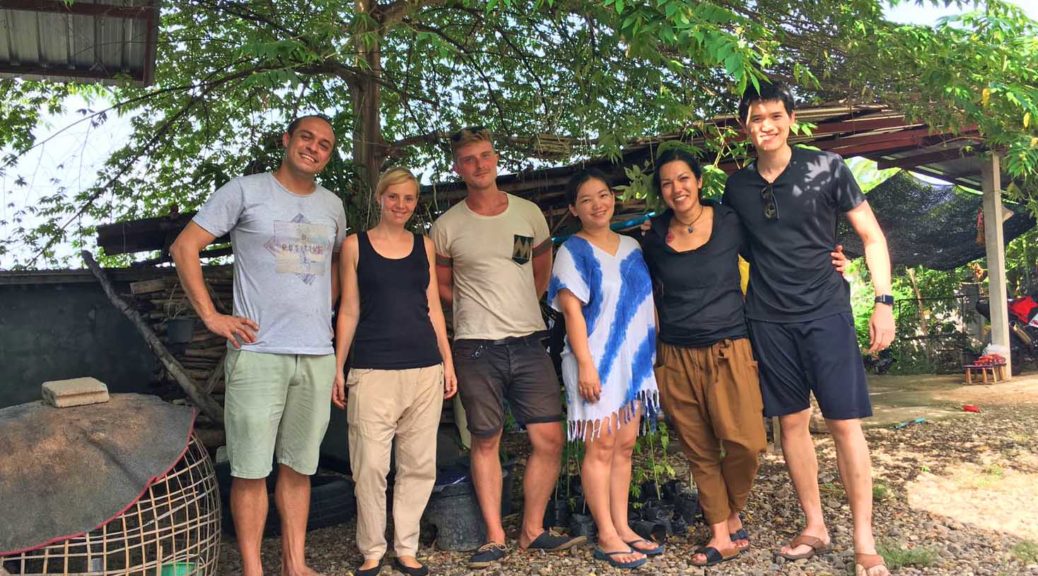A new member of the virblatt family
At the end of 2016, we launched LAPPENWERK to reduce waste and blends from our previous production facilities. Instead of throwing away residues, they are to be sewn together into colorful patchwork blankets and integrated into our previous designs. Sustainable and beautiful at the same time. For this project we were looking for a skilled seamstress and met Phi Yoo at one of the night markets in Chiang Mai. She was enthusiastic about the idea and so began our partnership……
Why does Phi Yoo sew
As it turned out after a short cooperation, Phi Yoo is an excellent seamstress. She began her career importing baby clothes and simply offering them on the local markets at night in Chiang Mai. During the day she worked as a seamstress for various textile companies. She was dissatisfied with the conditions and has now been running her own tailor shop with 5 employees for 6 years. She specializes in bags and backpacks and she is a master at it.
Why do we want to work with Phi Yoo
Phi Yoo belongs to the ethnic group of Hmong. Hmong people are one of the ethnic minorities that have settled in the Thai mountain regions since 1950. Hmong is characterized by close family ties, traditional work with natural materials and detailed embroideries and accessories. When we meet with Phi Yoo to discuss new designs, she is often accompanied by her husband, mother, siblings and 3 month old daughter Rain. It is nice to see how family and work go hand in hand, which is also reflected in the atmosphere at their sewing facilities. Not quantity-focused mass production but a lot of manual work, laughing and bustling around are pillars of daily working life here. Exactly the values that we also represent! This becomes obvious looking at the quality of our bags and backpacks.
… and she also likes hemp
Phi Yoo’s previous work was limited to sewing with cotton and the traditional embroideries of the Hmong. She was euphoric when we started working with hemp with her, because this raw material was too expensive for her. Her mother taught us a lot about the cultivation and the traditional processing of hemp of the Hmong. Hemp is planted at the end of May and then harvested in July. It is then grated into fibers and dried for 2 months. From October to December, yarn is spun and woven into fabrics in January. The production of one roll takes about 4-5 days. Finally, the fabric is cooked hot, changing color from green to beige and treated with wax to make it supple.
What’s the next step?
We are enthusiastic about Phi Yoo and want to grow through and together with her. In addition, in 2017 her family will guide us through the entire cultivation and production process of our hemp. This promises nice tours into secluded areas in Northern Thailand, lots of ricewineand video footages of how your hemp backpacks and hemp bags are made and where the hemp comes from.
Kennziffer: 895433

